The price is available ON REQUEST
Hungary is a developing (landlocked) Central European country with a healthcare system that reflects its growth. In terms of infrastructure, technology, and methods, it is on par with the world's most modern healthcare facilities. With the passage of time, the specialisation of cardiac care is also getting more efficient and refined. Hungary's cardiologists are well-educated and have a wealth of domain-specific experience and skills. Tourists seeking medical care and wellness treatments have long found Hungary to be an appealing destination. However, it has recently emerged as a European hotspot for cardiology, at least for Western and Northern Europeans, who often spend 50 to 80 percent more for cardiac treatment in their local place.
In Hungary, there are numerous good institutions hospitals for cardiology care, including the Dr Rose Private Hospital, which performs procedures in an excellent manner such as Heart Bypass Surgery.
In Hungary, Heart Bypass Surgery or Coronary Artery Bypass Grafting costs US$ 11,000, however the same treatment in Singapore costs US$ 56,000.
| Country | Minimum Cost | Minimum Local Currency | Maximum Cost | Maximum Local Currency |
|---|---|---|---|---|
| India | USD 5000 | INR 415750 | USD 6000 | INR 498900 |
| Thailand | USD 12000 | THB 427800 | USD 25000 | THB 891250 |
| Turkey | USD 5000 | TRY 150700 | USD 14000 | TRY 421960 |
| United Arab Emirates | USD 10000 | AED 36700 | USD 30000 | AED 110100 |
Treatment cost

MediGence is offering immense facilities for your medical journey such as:
We provide packages at economical prices with a number of additional benefits which make it a better opportunity than spending actual hospital costs with singular benefits. Coronary artery bypass grafting (CABG) betters blood flow to the heart. It is a treatment option for a patient who has been suffering from Coronary Heart Disease. Coronary Heart Disease or Coronary Artery Disease in which plaque can add on within the coronary arteries reducing the oxygen-rich blood supply to the heart. In CABG a healthy vein or artery anywhere else from the body is connected to or grafted to the coronary artery which is blocked which bypasses the blocked part., We have outstanding options with all kinds of benefits for you to get the CABG surgery done in Sarvodaya Hospital and Research Centre, India.

We provide numerous services for your medical journey, including:
With us, you are sure to receive all the benefits at competitive prices which is a better choice than paying actual hospital costs. Coronary artery bypass grafting (CABG) betters blood flow to heart. It is a treatment option for a patient who has been suffering from Coronary Heart Disease. Coronary Heart Disease or Coronary Artery Disease in which plaque can add on within the coronary arteries reducing the oxygen rich blood supply to heart. In CABG a healthy vein or artery anywhere else from the body is connected to or grafted to the coronary artery which is blocked which bypasses the blocked part., We have outstanding options with all kinds of benefits for you to get the CABG surgery done in Fortis Hospital, Shalimar Bagh, India.

Dr. Rose Private Hospital located in Budapest, Hungary is accredited by JCI. Also listed below are some of the most prominent infrastructural details:

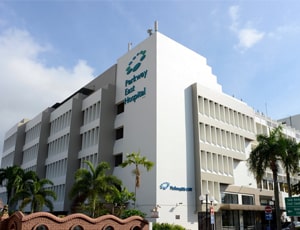
Parkway East Hospital located in Joo Chiat Pl, Singapore is accredited by JCI. Also listed below are some of the most prominent infrastructural details:
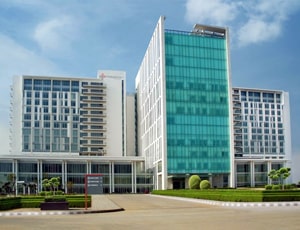
Types of Coronary Artery Bypass Grafting (CABG) in Medanta - The Medicity and its associated cost
| Treatment Option | Approximate Cost Range (USD) | Approximate Cost Range (INR) |
|---|---|---|
| CABG (Overall) | 4639 - 17356 | 380555 - 1442901 |
| On-Pump CABG | 4772 - 8478 | 386918 - 696773 |
| Off-Pump CABG | 5614 - 9564 | 464477 - 796524 |
| Minimally Invasive CABG | 8375 - 13605 | 706670 - 1093653 |
| Robot-Assisted CABG | 11119 - 17119 | 935709 - 1372632 |
| Redo CABG | 8510 - 13618 | 706777 - 1108570 |
DOCTORS IN 14 SPECIALITIES
FACILITIES & AMENITIES
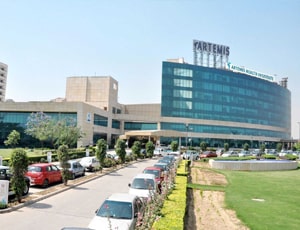
Types of Coronary Artery Bypass Grafting (CABG) in Artemis Health Institute and its associated cost
| Treatment Option | Approximate Cost Range (USD) | Approximate Cost Range (INR) |
|---|---|---|
| CABG (Overall) | 4790 - 17252 | 381574 - 1449205 |
| On-Pump CABG | 4756 - 8253 | 389368 - 684366 |
| Off-Pump CABG | 5570 - 9450 | 463186 - 792205 |
| Minimally Invasive CABG | 8357 - 13414 | 688416 - 1116326 |
| Robot-Assisted CABG | 11044 - 16955 | 919848 - 1378518 |
| Redo CABG | 8512 - 13552 | 680363 - 1103649 |
DOCTORS IN 15 SPECIALITIES
FACILITIES & AMENITIES
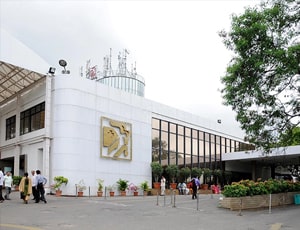
Types of Coronary Artery Bypass Grafting (CABG) in Apollo Hospitals and its associated cost
| Treatment Option | Approximate Cost Range (USD) | Approximate Cost Range (INR) |
|---|---|---|
| CABG (Overall) | 4818 - 17314 | 379211 - 1454836 |
| On-Pump CABG | 4835 - 8339 | 398744 - 695371 |
| Off-Pump CABG | 5733 - 9491 | 468789 - 774678 |
| Minimally Invasive CABG | 8319 - 13499 | 700756 - 1124393 |
| Robot-Assisted CABG | 11194 - 16807 | 904967 - 1354681 |
| Redo CABG | 8570 - 13302 | 701308 - 1111267 |
DOCTORS IN 14 SPECIALITIES
FACILITIES & AMENITIES
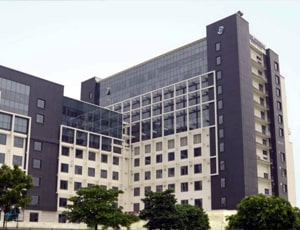
Types of Coronary Artery Bypass Grafting (CABG) in Venkateshwar Hospital and its associated cost
| Treatment Option | Approximate Cost Range (USD) | Approximate Cost Range (INR) |
|---|---|---|
| CABG (Overall) | 4271 - 15764 | 348541 - 1295271 |
| On-Pump CABG | 4324 - 7634 | 355034 - 623088 |
| Off-Pump CABG | 5062 - 8616 | 416591 - 704253 |
| Minimally Invasive CABG | 7646 - 12163 | 622641 - 995403 |
| Robot-Assisted CABG | 10141 - 15275 | 835523 - 1243073 |
| Redo CABG | 7648 - 12230 | 626336 - 1001298 |
DOCTORS IN 13 SPECIALITIES
FACILITIES & AMENITIES
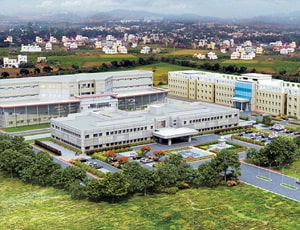
Types of Coronary Artery Bypass Grafting (CABG) in Global Health City and its associated cost
| Treatment Option | Approximate Cost Range (USD) | Approximate Cost Range (INR) |
|---|---|---|
| CABG (Overall) | 4706 - 17381 | 387205 - 1400732 |
| On-Pump CABG | 4703 - 8431 | 384313 - 693686 |
| Off-Pump CABG | 5729 - 9398 | 466759 - 784066 |
| Minimally Invasive CABG | 8424 - 13539 | 702097 - 1094977 |
| Robot-Assisted CABG | 11383 - 16782 | 903237 - 1407218 |
| Redo CABG | 8254 - 13542 | 699216 - 1096455 |
DOCTORS IN 14 SPECIALITIES
FACILITIES & AMENITIES
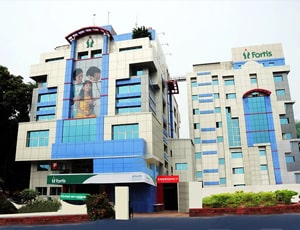
Types of Coronary Artery Bypass Grafting (CABG) in Fortis Malar Hospital and its associated cost
| Treatment Option | Approximate Cost Range (USD) | Approximate Cost Range (INR) |
|---|---|---|
| CABG (Overall) | 4247 - 15782 | 350101 - 1295476 |
| On-Pump CABG | 4323 - 7580 | 352323 - 625477 |
| Off-Pump CABG | 5068 - 8600 | 416059 - 706542 |
| Minimally Invasive CABG | 7624 - 12196 | 627122 - 1003375 |
| Robot-Assisted CABG | 10196 - 15292 | 835910 - 1249488 |
| Redo CABG | 7601 - 12127 | 623324 - 998601 |
DOCTORS IN 9 SPECIALITIES
FACILITIES & AMENITIES
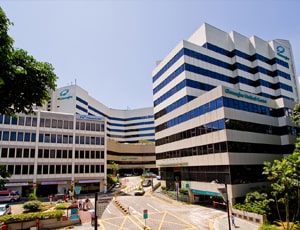
Gleneagles Hospital located in Napier Road, Singapore is accredited by JCI. Also listed below are some of the most prominent infrastructural details:
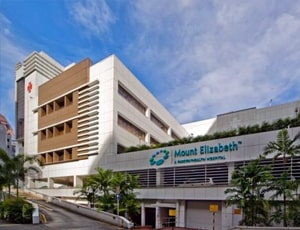
Mount Elizabeth Hospital located in Singapore, Singapore is accredited by JCI. Also listed below are some of the most prominent infrastructural details:

Types of Coronary Artery Bypass Grafting (CABG) in Sterling Wockhardt Hospital and its associated cost
| Treatment Option | Approximate Cost Range (USD) | Approximate Cost Range (INR) |
|---|---|---|
| CABG (Overall) | 4269 - 15701 | 348245 - 1291507 |
| On-Pump CABG | 4304 - 7596 | 353484 - 623386 |
| Off-Pump CABG | 5063 - 8653 | 414583 - 707089 |
| Minimally Invasive CABG | 7575 - 12152 | 622324 - 997866 |
| Robot-Assisted CABG | 10122 - 15209 | 835131 - 1243637 |
| Redo CABG | 7633 - 12151 | 621217 - 1001116 |
DOCTORS IN 14 SPECIALITIES
FACILITIES & AMENITIES
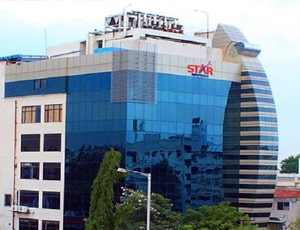
Types of Coronary Artery Bypass Grafting (CABG) in Star Hospitals and its associated cost
| Treatment Option | Approximate Cost Range (USD) | Approximate Cost Range (INR) |
|---|---|---|
| CABG (Overall) | 3917 - 14528 | 318549 - 1200800 |
| On-Pump CABG | 3966 - 7053 | 329088 - 573548 |
| Off-Pump CABG | 4666 - 7972 | 380825 - 655412 |
| Minimally Invasive CABG | 7023 - 11236 | 572525 - 923872 |
| Robot-Assisted CABG | 9266 - 14138 | 763845 - 1138321 |
| Redo CABG | 7037 - 11120 | 581585 - 933390 |
DOCTORS IN 12 SPECIALITIES
FACILITIES & AMENITIES
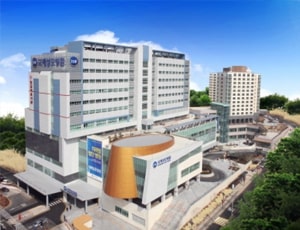
International St. Mary's Hospital located in Seoul, South Korea is accredited by JCI. Also listed below are some of the most prominent infrastructural details:
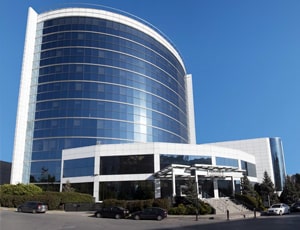
Types of Coronary Artery Bypass Grafting (CABG) in Medicana International Istanbul and its associated cost
| Treatment Option | Approximate Cost Range (USD) | Approximate Cost Range (TRY) |
|---|---|---|
| CABG (Overall) | 11471 - 28250 | 344491 - 850440 |
| On-Pump CABG | 11485 - 16916 | 348448 - 500996 |
| Off-Pump CABG | 13246 - 20064 | 410168 - 599178 |
| Minimally Invasive CABG | 16769 - 22425 | 506431 - 678040 |
| Robot-Assisted CABG | 20404 - 28681 | 611792 - 857505 |
| Redo CABG | 13559 - 20217 | 408806 - 614228 |
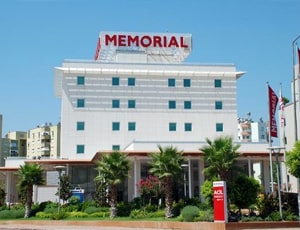
Types of Coronary Artery Bypass Grafting (CABG) in Memorial Antalya Hospital and its associated cost
| Treatment Option | Approximate Cost Range (USD) | Approximate Cost Range (TRY) |
|---|---|---|
| CABG (Overall) | 11376 - 28116 | 336839 - 847238 |
| On-Pump CABG | 11240 - 17143 | 341458 - 497990 |
| Off-Pump CABG | 13541 - 19832 | 400011 - 602694 |
| Minimally Invasive CABG | 16636 - 22881 | 510277 - 671950 |
| Robot-Assisted CABG | 20607 - 27771 | 608698 - 855692 |
| Redo CABG | 13290 - 20394 | 409648 - 608545 |
Coronary artery bypass grafting (CABG) is an open-heart surgery to improve blood flow to the heart. The procedure involves taking a healthy artery or vein from another part of the body and using it to bypass a blocked coronary artery. This complex yet common surgery helps restore proper blood supply to the heart muscle.
Coronary artery bypass surgery is performed to restore blood flow around blocked heart arteries, often recommended in cases where other immediate treatments have proven ineffective, especially during a heart attack. Your healthcare provider might suggest this procedure if you have:
Coronary artery bypass grafting (CABG) is a surgical intervention aimed at enhancing blood circulation to the heart. There are two main approaches to performing CABG: open-heart surgery and laparoscopic bypass surgery. Open-heart surgery involves making a large incision down the middle of the chest to access the heart, while laparoscopic bypass surgery, a minimally invasive technique, uses smaller incisions. The latter method results in less discomfort, fewer complications, and a faster recovery.
The choice between these approaches depends on the severity of the coronary artery blockage, the overall health of the patient, and the surgeon’s expertise. Laparoscopic bypass surgery is typically preferred for less severe blockages, while open-heart surgery is reserved for more complicated cases and high-risk patients.
CABG is performed under general anesthesia. The cardiac surgeon begins by making an incision down the middle of the chest and using a saw-like instrument to cut through the sternum (median sternotomy) to access the heart. The heart is then cooled with iced salt water, and a preservative solution is injected into the arteries (cardioplegia) to minimize damage by reducing blood flow during the surgery. A cardiopulmonary bypass machine takes over the function of the heart and lungs during the procedure.
The surgery involves harvesting a healthy artery or vein, such as the saphenous vein from the leg or the internal mammary artery from the chest wall. The graft is sewn to the coronary arteries beyond the blockage, with the other end attached to the aorta. The internal mammary artery is often preferred due to its longer patency rate compared to venous grafts.
Once the bypass is complete, the sternum is wired together with stainless steel, and the chest incision is sewn shut. Plastic tubes are placed to drain blood from around the heart and are removed shortly after surgery, along with the breathing tube. The use of multiple bypasses (3, 4, or 5) has become common, providing comprehensive improvement in blood flow and reducing the risk of future heart issues.
After surgery, patients are transferred to the ICU for close monitoring and are typically moved to the patient ward the following day. Within 3 to 4 days after surgery, about 25 percent of patients may experience heart rhythm disturbances, specifically temporary atrial fibrillation caused by surgical trauma. These patients generally respond well to standard medical therapies.
Recovery times vary, with hospital stays ranging from one day to a week. Younger patients often get discharged within two days. Although recovery can be lengthy, patients should gradually resume physical activities, keeping them to a minimum initially to allow proper healing.
Ask your healthcare adviser for the best multiple options and choose the one that meets your expectations
Coronary Artery Bypass Grafting (CABG) package cost in Hungary has different inclusions and exclusions. The cost quoted by some of the best hospitals for Coronary Artery Bypass Grafting (CABG) in Hungary generally covers the pre-surgery investigations of the patient. Typically, the package cost of Coronary Artery Bypass Grafting (CABG) in Hungary includes the expenses related to the surgeon's fee, anesthesia, hospital, meals, nursing and ICU stay. There are many things that may increase the cost of Coronary Artery Bypass Grafting (CABG) in Hungary, including prolonged hospital stay and complications after the procedure.
There are many hospitals that perform Coronary Artery Bypass Grafting (CABG) in Hungary. Some of the best hospitals for Coronary Artery Bypass Grafting (CABG) in Hungary include the following:
After Coronary Artery Bypass Grafting (CABG) in Hungary, the patient is supposed to stay in guest house for another 21 days. This time frame is important to ensure that the surgery was successful and the patient is fit to fly back.
Apart from the Coronary Artery Bypass Grafting (CABG) cost, the patient may have to pay for additional daily expenses such as for guest house after discharge and meals. The per day cost in this case may start from USD 50 per person.
Some of the cpopular cities in Hungary that offer Coronary Artery Bypass Grafting (CABG) include the following:
After the Coronary Artery Bypass Grafting (CABG) takes place, the average duration of stay at the hospital is about 5 days. This phase is important to ensure that the patient is recovering well and is clinically stable. During this time, several tests are performed before the patient is deemed suitable for discharge.
There are more than 1 hospitals that offer Coronary Artery Bypass Grafting (CABG) in Hungary. These hospitals have proper infrastructure for the treatment of patients who require kidney transplant. Apart from good services, the hospitals are known to follow all standard and legal guidelines as dictated by the local medical affairs body or organization.
Some of the renowned medical specialists for Coronary Artery Bypass Grafting (CABG) in Hungary are: